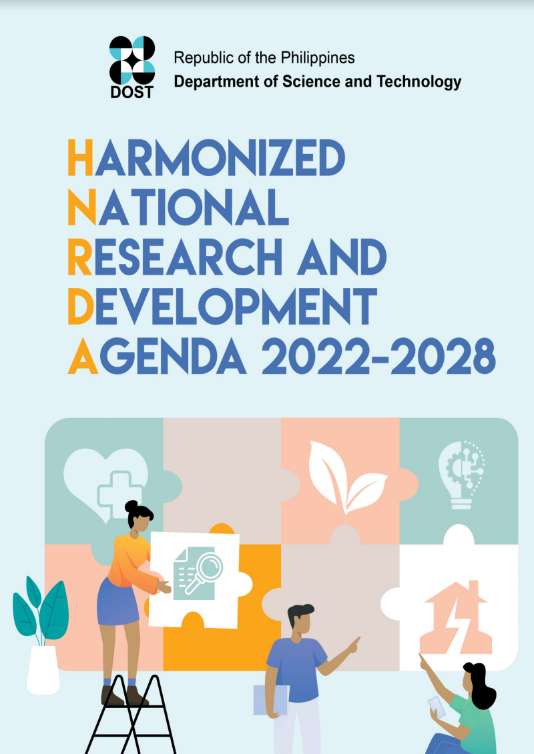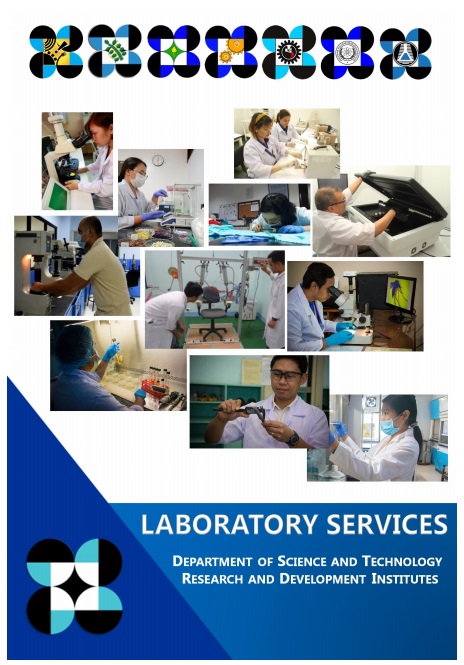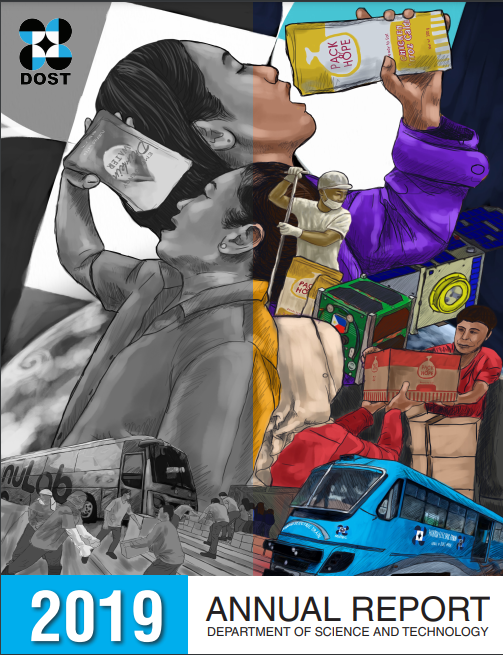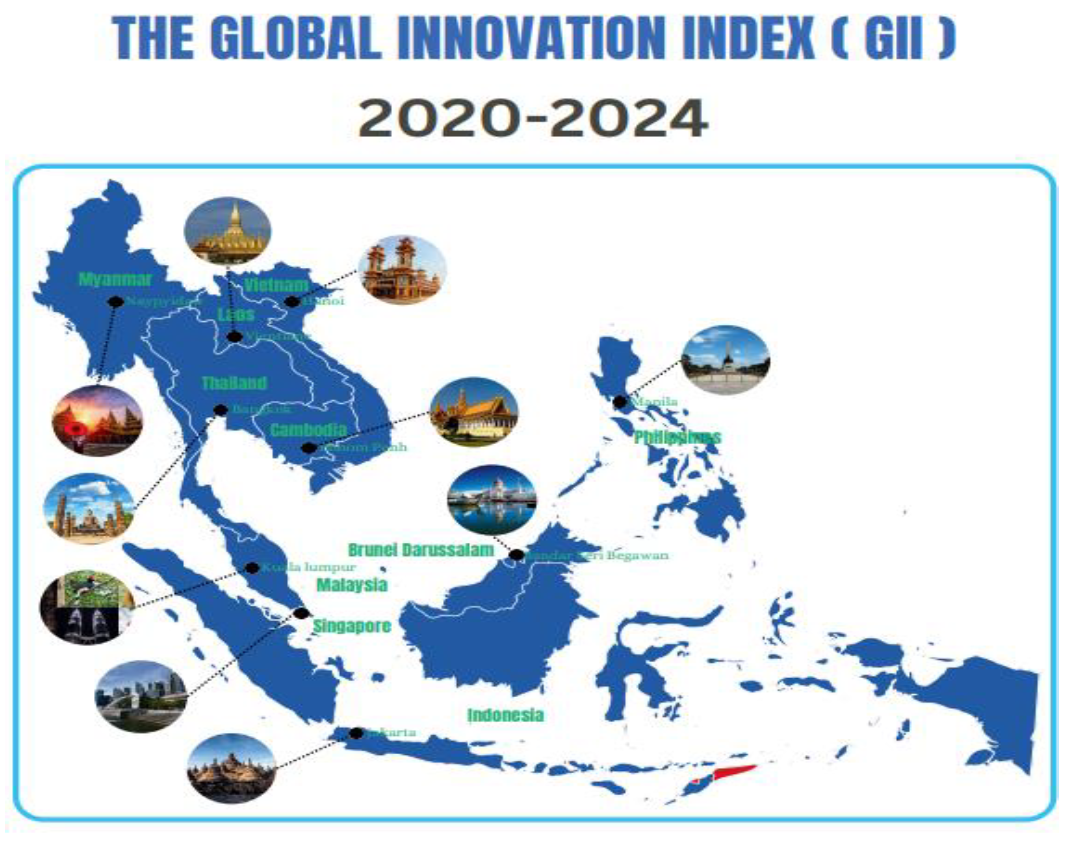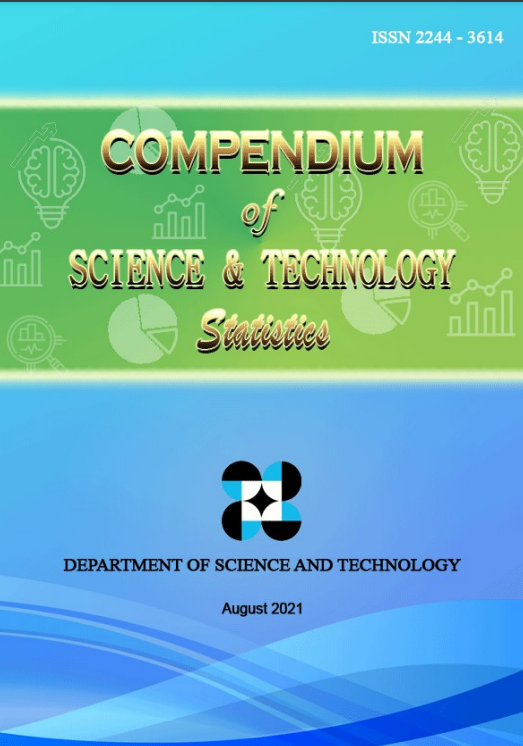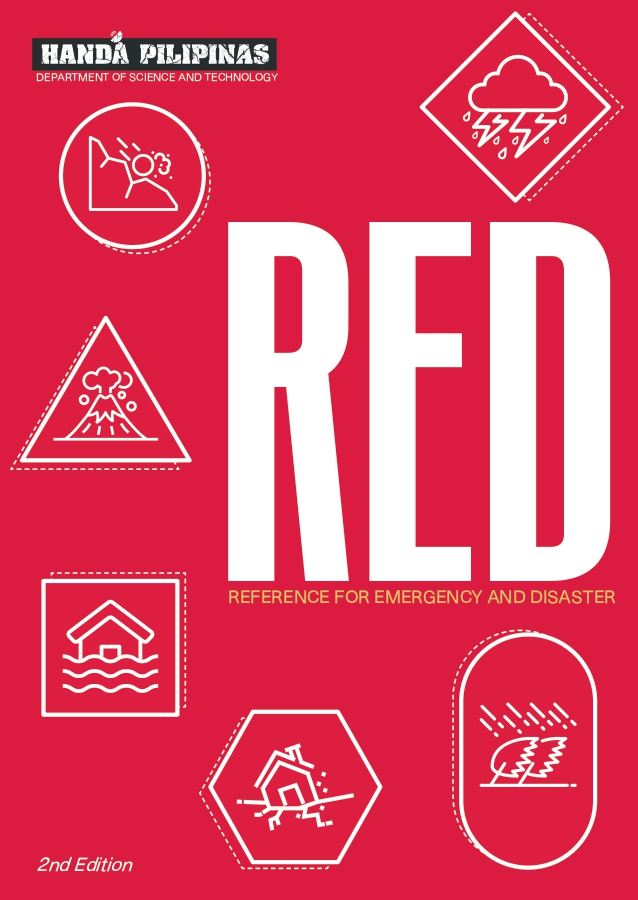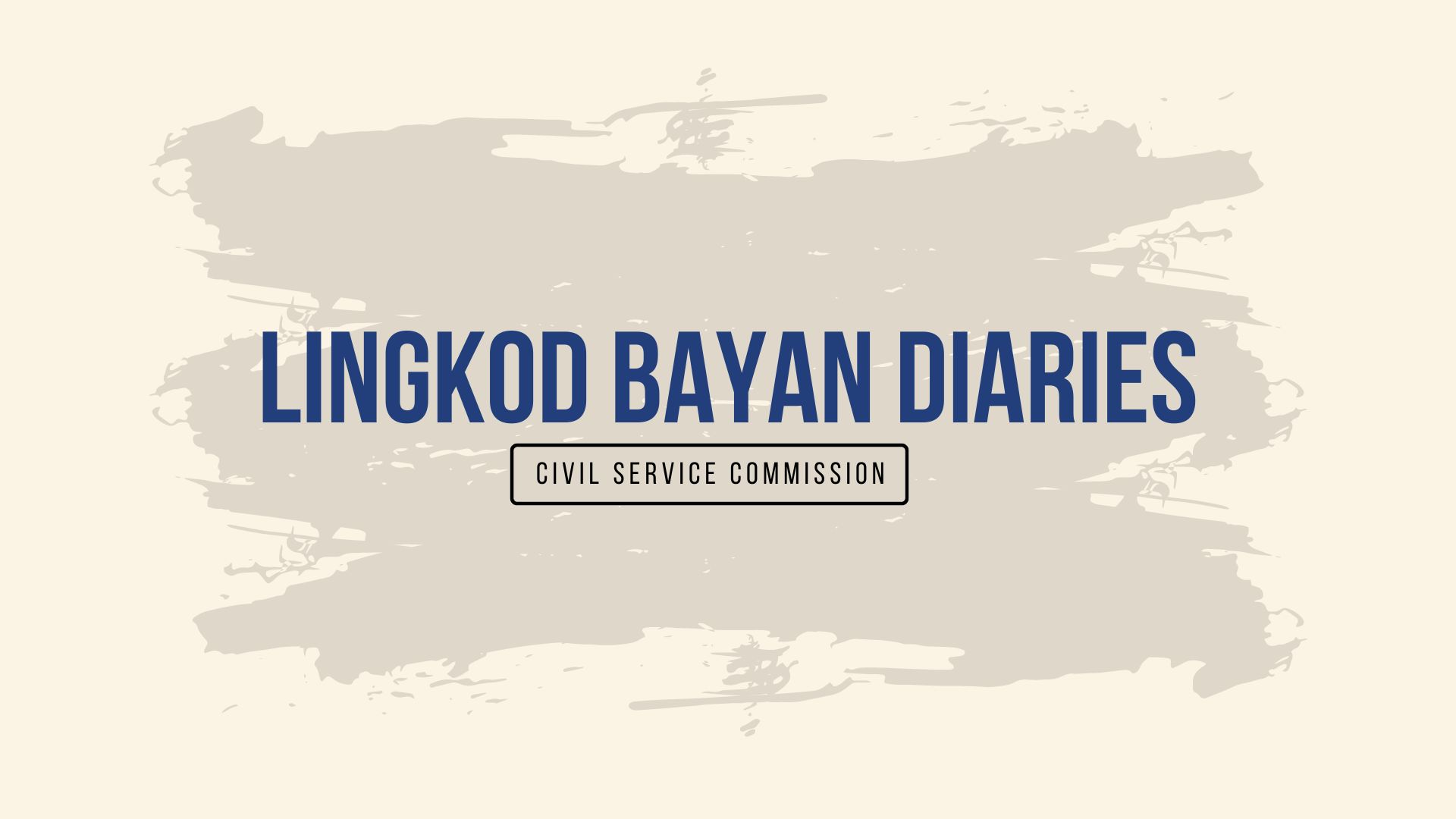Investing in healthcare innovation
- Details
- Hits: 7016
“A healthy citizenry equals a productive citizenry, equals a productive country.” Department of Science and Technology (DOST) Region XI Assistant Regional Director Elsie Mae A. Solidum thus summed up her talk titled “Why it makes sense to invest in healthcare innovation” during the recent Innovation Expo 2012 held at the Abreeza Mall in Davao City.
Bringing the Expo to the provinces such as Davao is very important, Solidum said. This is due to the fact that the quality of health service in rural districts especially the far-flung regions is crippled because of the strong demand for highly skilled medical professionals in the big, progressive cities, making doctors and nurses flock to these urban areas. Connectivity and accessibility to expert medical care then become serious problems in these localities.
This is where technology can bridge the gap, without necessarily adding cost to the service, said Solidum. The DOST official mentioned cellular phones and the Internet as strong, reliable tools to create such connectivity between doctors, nurses, and patients.
Innovation Expo is a project of DOST’s Information and Communications Technology Office and ICT Davao, in partnership with the Regional Health Research and Development Consortium-XI (RHRDC-XI). Bannered the theme “Enabling Innovation in Healthcare, Creative and ICT Industries”, the Expo was held in November to inform players of said industries and the public on the need to maximize the use of technological trends in the profession and promote the adoption of locally developed ICTs.
The initiative is in line with DOST Sec. Mario Montejo’s pitch of developing and using local technologies and the Department’s current thrusts of pushing further to the frontlines the healthcare and IT-business process outsourcing (BPO) industries. DOST-XI Regional Director Anthony Sales gave full support to the Expo, in regard to the fact that Davao tops the Next Wave Cities, or areas outside Metro Manila and Cebu that have the strongest potentials as BPO hub.
In affirming DOST’s commitment in support of advancements and modernization of the local health care sector, Solidum stated that the Department fulfills this task via its sectoral council, the Philippine Council for Health Research and Development. The council formulates policies, develops strategies, implements projects, and provides funding as it strengthens the feasibility and impact of these health innovations.
Meanwhile, in another talk, Engr. Wilfredo Nadela, vice president of Segworks Technologies Corporation said, “If we need our health care organizations to be more cost-effective, more organized, and more efficient, there is no other way but to invest in healthcare innovation.” Segworks is a frontrunner in southern Mindanao’s software industry.
Nadela discussed two dynamic areas in which hospitals and health facilities can effectively put innovations in place: IT tools and health information system portals.
According to him, IT tools which include electronic-based medical histories and records of patients will help assist physicians in evidence-based decision making. Health information system portals, on the other hand, will allow patients, doctors, and nurses to log on to their own secure portals for the necessary information – from the patient’s medical history, health status and progress, to medication, treatment and procedures.
“Personally, I think the Philippines needs health care innovations. China, Vietnam, and Singapore have better health care systems than we do,” claimed Nadela.
Adrian Flores, CEO of X2 Wave Corporation, a Davao-based software company specializing in health care solutions, further illustrated the benefits of incorporating results-driven technology within hospital systems via a presentation of the company’s high-impact software solutions. Among these is the Electronic Medical Record which has the full capability of sharing patient information with any health care facility or doctor as the need arises.
Innovation Expo 2012, which likewise served as a show window for Filipinos’ potential and high level of expertise in ICT, was attended by medical professionals, IT product developers, vendors, BPO service providers, and students, among others.
Green signs for biotechnology-based industries in PH
- Details
- Hits: 7762
The biotech-based industry in the country may not be driving as fast but several go signals ahead are sure to keep it running into full speed.
One green sign is House Bill 844 or “An Act Promoting the Growth of Biotechnology Industry in Philippines and the Creation of Wealth from Biodiversity” filed by the AGHAM party-list.
One of the bill’s features is the establishment of the “Philippine Bioindustry R&D Center” to develop and market competitive biologically-based technologies and products. The Center also aims to harness the country’s biodiversity in developing competitive products for the world market, and to manage Biotechnology Research Fund that will support off-Center R&D and research fellowship and training program; among other functions.
According to AGHAM Representative Angelo Palmones, author of the bill, the Center shall exist as a government owned and controlled corporation or GOCC for a maximum period of 10 years, after which it shall be sold-off to the private sector. It will have a funding of P500M from the Agricultural Competitive Enhancement Fund to cover its operations for 10 years.
Another provision of the bill is the setting up of the Biotechnology Guarantee Fund amounting to P500M to provide guarantee for venture capital invested by biotechnology companies. Companies and company start-ups may also avail of incentives in the form of income tax deduction, exemption and credit, and other forms of incentives from the Board of Investments, Philippine Export Processing Zone and Barangay Micro Business Enterprise.
Palmones discussed the bill in his keynote speech on the opening of the 8th National Biotechnology Week (NBW) at the Gateway Mall in Cubao. Quezon City. The NBW featured symposiums and exhibits that promote biotechnology products developed by Filipinos for Filipinos specifically for better health of the people, and protection and conservation of the country’s environment.
With the tagline “OK ang 5K (Kalikasan, Kalusugan, Kagandahan, Kabuhayan at Kaunlaran) sa Pangkalahatan Kalusugan: Mamamayan at Kalikasan,” the celebration is spearheaded by Department of Health Secretary Enrique T. Ona in collaboration with the Departments of Science and Technology (DOST), Agriculture, Education, environment and natural resources, trade and industry, interior and local government, and Commission on Higher Education.
“We have five days to clarify with technology generators the many misconceptions about biotechnology products and gain better perspectives as to their effects to health and environment,” Palmones said.
Palmones admitted that the NBW should have been better if, along with supporters and advocates of biotech, there were also “oppositionists.” for them to get better views and understanding of the field.
Hastening the growth of PH biotech industry
Inadequate policy environment to encourage and support bioindustry development is one major factor identified by Palmones that slows the growth of biotechnology industry in the country.
“Former DOST Secretary Dr. William Padolina has already articulated the importance of private sector participation in the development of agricultural biotechnology more than a decade ago,” he said.
According to Padolina, sustainability of biotechnology R&D activities can only be assured if they are able to serve commercial purposes, and which may form the beginnings of an agricultural biotechnology industry and the much-needed commercial base for modern biotechnology to take-off in the country.
The youth write about biotech
Another highlight of this year’s NBW is the participation of young people through the Biotech Campus Journalism Contest. High school and college student-writers from both private and public schools nationwide submitted feature articles on the topic Benefits and potentials of modern crop biotechnology in the Philippines.”
In the college level, Eddie Dulpina of Our Lady of Fatima University bagged first place, followed by Dia Marmi Bazar of Misamis University at second place, and Mark Anthony Daza Toldo of University of Sto. Tomas at third.
In the high school level, Joelle Mae Garcia of Pasig City Science High School topped the aspiring biotech scribes, followed by Jeremy John Magpantay of De La Salle University’s Science and Technology Complex at second place, then Regiem-Melech Ocampo of Adventist University of the Philippines Academy at third.
Winners and finalists were awarded during the opening day of 2012 NBW.
The contest was organized by the Philippine Science Journalists Association Inc., AGHAM Party List, International Service for the Acquisition of Agri-biotech Applications, and Southeast Asian Regional Center for Graduate Study and Research in Agriculture.
“I believe that with the youth as advocates we can look forward for stronger support to the country’s effort in advancing the cause of biotechnology,” said AGHAM Party-List Rep. Palmones.
On exhibit were research and development (R&D) products on environment, health, agriculture and topics such as, milestones of biotechnology, country’s biotech and safety regulations, winning entries of last year’s NBW “BiotechTOONS Contest” on benefits and potentials of crop biotechnology, and the like.
Among those on display at the booths were DOST’s priority projects on biotechnology and genomics such as, clean-up agents of mining wastewater; fermentation technology for ethanol production; reactor to treat highly-polluted water of small and medium enterprises; plant-based wood preservative; diagnostic kits to detect white spot virus in shrimps and harmful contaminants in meat; radiation technologies and tissue culture in plant breeding; interactive genome library for influenza virus; diagnostic kit to detect dengue virus; among other projects for industry, health and agriculture sectors.
Notes:
AGHAM is a non-stock, non-profit association of science professionals, science journalists, advocates and supporters that seeks to push S&T as effective tools for economic development.
For more details on House Bill 844, please access the website www.agham.org.ph.
DOST-sponsored Science Film Festival cascades importance of water
- Details
- Hits: 4731
Now on its third year in the Philippines, the ASEAN Science Film Festival (ScFF) continues to put across important messages to appeal to a broader audience through film. The 2012 ScFF has the theme “Water for Life” in keeping with the United Nation’s (UN) International Decade for Action Water (2005-2015). The festival also aims to preview 2013 as UN’s International Year of Water Cooperation.
Running from the third to fourth week of November, the ScFF comprises over a hundred award-winning documentaries, features, and awe-inspiring investigative reports from around the world that aim to make an impression to audiences of different ages. They tackle different topics in ecology, earth science, environment protection, water-related science and technologies, family edutainment, and important contemporary concerns like climate change.
The showing of the 2012 ScFF in the country is through the cooperation of the Science Education Institute of the Department of Science and Technology (DOST-SEI), the Goethe-Institut Philippinen, the Department of Education (DepEd), ABS-CBN Foundation, Inc., the United Nations Educational, Scientific and Cultural Organization (UNESCO), and other partners.
According to German Ambassador to the Philippines Dr. Joachim Heidorn, the 2012 ScFF “supports children’s interest in dealing with scientific and environmental problems and encourage them to find means to address the ecological issues of the country.”
Meanwhile, the United Nations estimates that nearly two in 10 people have no source of safe drinking water while millions die—mostly children under five—from diseases associated with inadequate water supply, sanitation, and hygiene.
Also, according to oceanographer Dr. Laura T. David of the UP Marine Science Institute, water resources in the Philippines are being stretched to the limit through overfishing, destructive fishing, coastal development, pollution, sedimentation, and climate change.
“We support the 2012 ScFF as it contributes in making Filipinos aware and knowledgeable on the proper use and sustainable management of our water resources. The Philippines houses a big portion of the Coral Triangle, has rich water resources, and shall benefit greatly from an educated citizenry,” added DOST-SEI Director Dr. Filma Brawner.
The 2012 ScFF runs in nine venues across Metro Manila, namely at the DOST Complex in Taguig City, Manila Ocean Park, The Mind Museum, Museo Pambata, the National Library, Quezon City Science Interactive Center, Philippine Science Centrum, ASEAN Center of Biodiversity, and the Science Discovery Center at the SM Mall of Asia.
An original initiative of Goethe-Institut for the ASEAN Region, the ScFF is also simultaneously held in neighbor countries, namely, Indonesia, Malaysia, Thailand, and Cambodia.

2012 Science Film Festival (ScFF)'s first lucky viewers. If being the first to see a few of the superb films featured in the ASEAN Science Film Festival (ScFF) isn't cool enough, students from the St. Michael Academy of Bulacan also get to have their picture taken beside the organizers after the initial screening at the Mind Museum. Now on its third year in the Philippines, the ScFF aims to open kids' minds—and hopefully adults' as well—to the pressing issues of society and inspire them to think of ways to address these through science. This years' ScFF’s theme is "Water for Life" as it underscores the United Nation's Decade for Water Action (2005-2015). In the photo are officials and representatives from the DOST Science Education Institute, Goethe-Institut, the Embassy of France, Museo Pambata, the National Museum, The Mind Museum, Felta Multimedia, Inc., ABS-CBN Foundation Inc., Quezon City Science Interactive Center, Manila Ocean Park, Nido Fortified Science Discovery Center, Philippine Science Centrum, ASEAN Centre for Biodiversity, and the German Agency for International Cooperation. (Photo by Marco D. Melgar, S&T Media Service, DOST-SEI)
DOST’s tsunami warning system makes coastal communities safer
- Details
- Hits: 8804
People living in high-risk coastal communities in Pangasinan and Albay are now better prepared for possible tsunami (events) with the recent installation of a tsunami detection system that provides real-time information and warning signals.
Called the Community Tsunami Detection and Warning System, the locally-developed equipment were installed recently in said provinces by experts from the Philippine Institute of Volcanology and Seismology (PHIVOLCS) and Advance Science and Technology Institute (ASTI), both of the Department of Science and Technology (DOST).
A Grant-in-Aid project of DOST titled “Establishment of a Cost-Effective Local Tsunami Early Warning System for Selected High-Risk Coastal Communities of the Philippines” or TeWS, the technology was put in place to provide a cost-efficient yet reliable system device for tsunami forecast and allow timely disaster response.
PHIVOLCS and ASTI undertook the first installation off Bolinao, Pangasinan in the Lingayen Gulf last September— the first complete set of tsunami ultrasonic sensors to be put in place. Later, tsunami warning sirens were installed in the following pilot barangays: Barangay Poblacion in Bolinao, Poblacion in Lingayen, and Gueset, Pugaro, and Binloc in Dagupan City.
Meanwhile, in Albay Gulf, the Community Tsunami Detection System and a warning siren was installed in the municipality of Rapu Rapu, while four other warning systems were put in place in the capital city of Legazpi.
The technology is basically made up of a platform with a 15-meter high pole. Two types of sensors are attached to this pole: the ASTI-designed ultrasonic tide gage sensor which notes the rise and fall of the sea level, and the PHIVOLCS-designed wet and dry sensors. The wet sensor detects post-earthquake receding water which may signal an impending tsunami, while the latter determines if water had already hit the pole. The wet sensor is installed at 1-, 5-, and 10-meter heights above sea level.
Information generated by the system reaches the LGU in near real-time. In cases when an earthquake is strong enough to cause a tsunami, the LGU can sound off the warning siren to warn those living in coastal areas and give them enough time to prepare and flee their homes, thus allowing the Philippines to climb several notches higher in the area of disaster preparedness and management.
Presently ongoing is the construction of two warning sirens in Subic, two in Olongapo, and one in Subic Bay Metropolitan Authority (SBMA). (Angelica A. de Leon, S&T Media Service)













